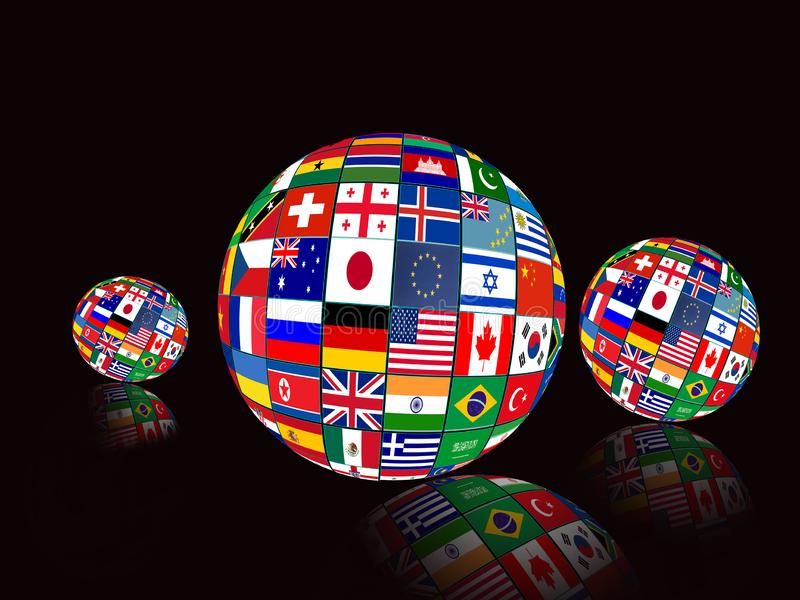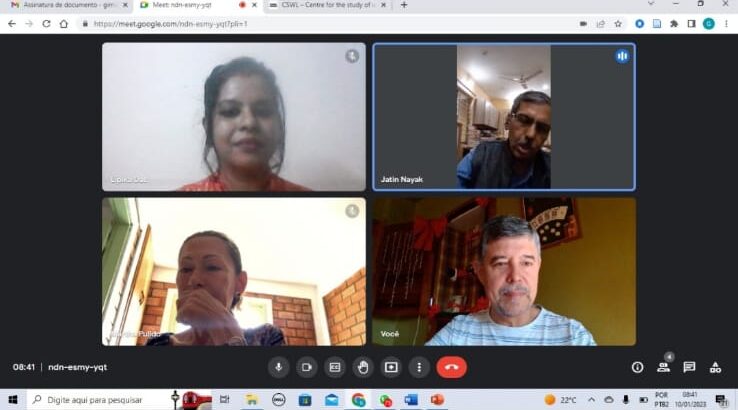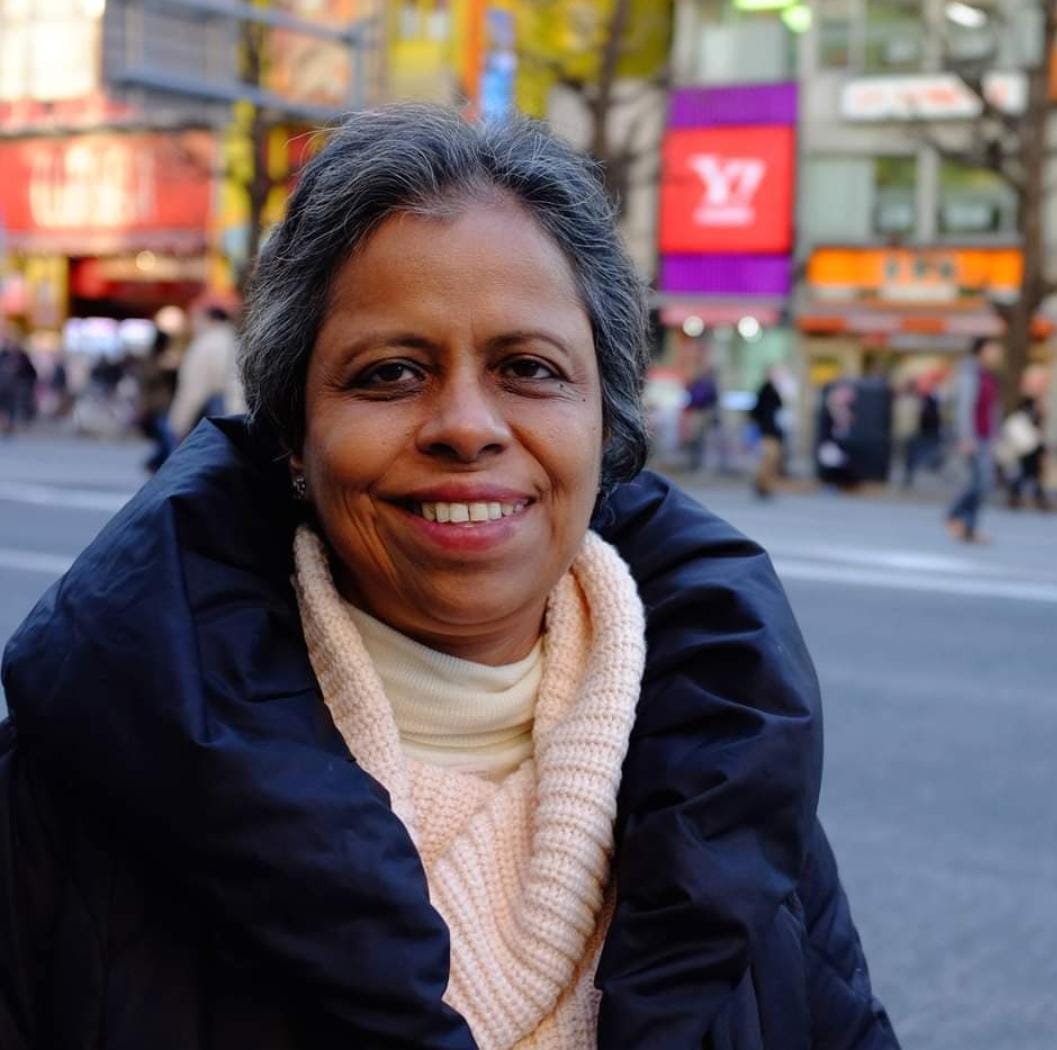Study of World Literature: Key Issues
“Science and art belong to the whole world, and before them vanish the barriers of nationality.”
Johann Wolfgang von Goethe,1813, Germany.
( Translated from German by John Oxenford )
“ It is time we pledged that our goal is to view universal humanity in universal literature by freeing ourselves from rustic uncatholicity”
Rabindrantha Tagore,1907, India.
( Translated from Bangla by Swapan Chakravorty )
“The objective of criticism should be to enrich literature by infusing national literature with the spirit of world literature”
Girija Sankar Ray, 1919, Odisha.
( Translated from Odia by Prof Jatindra Kumar Nayak )

About Us
The idea of World Literature was conceptualized by the German writer Johann Wolfgang von Goethe who used it as a tool to resist and overcome the constructs of nationalism. This was further reinforced by the publication of The Communist Manifesto by Karl Marx and Friedrich Engels, exactly after two decades of the pronouncement by Goethe. Further, the publication of the first journal of Comparative Literature under the editorship of Hugo Meltzl and Samuel Brassai , under the multilingual title, Összehasonlító Irodalomtörténelmi Lapok/ Acta Comparationis Litterarum Universarum, (1877) was an initiative to promote polyglottism in Comparative Literature and World Literature. Read More…..
Events
Center for the Study of World Literature organised a lecture on “World Literature on Multicultural Perspective”.
Events
Center for the Study of World Literature in collaboration with the Center for Asian Studies organised a lecture on “Visions of the Future”.
Speaker : David Anshen, Assistant Prof. Literatures and Cultural Studies University of Texas RIO- Grande Valley November, 2024.
Location : https://maps.app.goo.gl/6y1dq93txvc2kjvd7?g_st=com.google.maps.preview.copy
Center for the Study of World Literature in collaboration with the Center for Asian Studies organised a lecture on “Masculinity Studies in a Western Context”.
Speaker : Stefan Horlacher, Chair of English Literature at TU Dredsden, September, 2024.
Location : https://maps.app.goo.gl/6y1dq93txvc2kjvd7?g_st=com.google.maps.preview.copy
CSWL, at the 58th Annual Comparative World Literature Conference, Callifornia State University Long Beach, April 16-18,2024. Topic of presentation : Can World Literature exist without English ?
The Centre for the Study of World Literature in collaboration with the Centre for Asian Studies organised a Lecture on ” The Concept and Objectives of World Literature”.
Speaker: Robert Gafrik, Director at the Institute of World Literature, Slovak Academy of Sciences, Advisor to the Centre for the Study of World Literature – IIIT Bhubaneswar, August 2023.
> Online meeting regarding the UNESCO Project on Oral World Literature, 10 January, 2023.
Members present: Mentor, Centre for the Study of World Literature, Prof Jatindra Kumar Nayak, Coordinator, Dr Lipika Das, Martha Pulido C, Professor, Universidad de Antioquia, Gilvan Muller De Oliveira, Professor, Universidade Federal De Santa Catarina, Project Director UNESCO Chair LPM.

> 28th TIE Talk on 12 Nov 2022 by Dr Lipika Das. Topic : ‘Life’s Little Tales’ authored by B.N. Patnaik, published by Shiksha Sandhan.
> UNESCO Chair Event

Video Link: https://www.youtube.com/live/JBC4IG5ZUnU?feature=share
> Radio Translation 17:
The Reception of Shakespeare in Odisha: A talk by Lipika Das published on Radio Translation, Universidad de Antioquia, Medellin, Columbia.
Research area: The Reception of World Literature in Odisha.
Link: https://radiotranslatio.com/episode/radio-translatio-17-shakespeare-in-odisha/
> Inaugural Session

Video Link: https://www.youtube.com/watch?v=cuvDooGw2S8
Views

Congratulations for this excellent initiative of opening a Centre for the Study of World Literature in India. Your Centre is particularly relevant because you are focusing on four different areas of study: to promote the study of World Literature and that would lead to large translational activity; to look at World Literature from a regional perspective; to look at the reception of World Literature in Odiya that will open up various cross-cultural fields of study and an understanding of changes in the Odiya literary system; and finally, to look at conceptual issues that have gone into the notion of “World Literature” and inflect the same from your location. It is a challenging job, and you have all our best wishes as you begin the journey.

I visited the Center for the Study of World Literature at IIIT Bhubaneswar and wish the team, especially Jatindra Kumar Nayak, Lipika Das, and Shikha Vats, the best for their work. I support their program, which promotes reading world literature in both global and local contexts, similar to the shift from globalization to glocalization. This involves translating key literary works from various traditions to make them accessible and emphasizes non-Western perspectives, especially from the Global South. Literature is vital as it explores human ethics, morality, and the unthinkable, offering insights beyond sociological or political analysis. Roland Barthes and O. Ette highlight literature's essential role in understanding life and cultural dynamics. I wish the Centre for the Study of World Literature all the best for the years to come.


